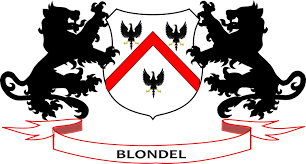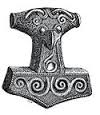

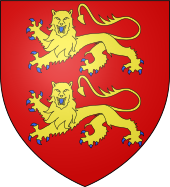
KING RICHARD'S SEAL - THE OFFICIAL COIN OF FIEF BLONDEL
King Richard and Fief Blondel 1193-1199It is recorded that King Richard granted a fief on the island to a vassal named Blondel , but it remains uncertain to this day as to whether the legend has direct connection with the known trouvère. During all this time the people of England were patiently waiting for Richard's return, and wondering what had become of him. They knew that he had sailed from Palestine in October, and various were the conjectures as to his fate. Some thought that he had been shipwrecked; others, that he had fallen into the hands of the Moors; but all was uncertainty, for no tidings had been heard of him since he sailed from Acre. Berengaria had arrived safely at Messina, and after remaining there a little time she proceeded on her journey, under the care of Stephen, as far as Rome, very anxious all the time about her husband. Here she stopped, not daring to go any farther. She felt safe in Rome, under the protection of the Pope. The emperor attempted to keep Richard's imprisonment a secret. On removing him from Tiernsteign, he shut him up in one of his own castles on the Danube named Durenstein. Here [Pg 325]the king was closely imprisoned. He did not, however, yield to any depression of spirits in view of his hard fate, but spent his time in composing and singing songs, and in drinking and carousing with the people of the castle. Here he remained during the spring and summer of 1193, and all the world were wondering what had become of him. At length rumors began gradually to circulate in respect to him among the neighboring countries, and the conduct of the emperor, in seizing and imprisoning him, was very generally condemned. How the intelligence first reached England is not precisely known. One story is, that a celebrated Troubadour, named Blondel, who had known Richard in Palestine, was traveling through Germany, and in his journey he passed along the road in front of the castle where Richard was confined. As he went he was singing one of his songs. Richard knew the song, and so, when the Troubadour had finished a stanza, he sang the next one through the bars of his prison window. Blondel recognized the voice, and instantly understood that Richard had been made a prisoner. He, however, said nothing, but went on, and immediately took measures to make known in England what he had learned. King Richard LionHeart Cœur de Lion and Fief Blondel
The blush, the light, the gorgeous glow of Eve
Waned from the radiant chambers of the west;
Now, twilight’s robe, dim, orient shadows weave:
One star, gleams faintly lustrous, in the east;
Far down it shines, on the blue Danube’s breast,
As calmly, wavelessly its waters glide
On to th’ appointed regions of their rest,
The Sea, profound and hoary, waste and wide;
Whose black’ning billows swell in ever restless pride.
High o’er the river rose a rocky hill,
With barren sides, precipitous, and steep:
There, ’gainst the sunset heav’ns, serene, and still
Frown’d the dark turrets of a feudal Keep.
Its folded flag, hung in the air asleep;
The breathless beauty of the Summer night
Gave not that Austrian [folio 2] standard, to the sweep
Of fresh’ning Zepyr, or wild Storm-blast’s might;
But motionless, it drooped, in eve’s soft, dying light
In that Stern Fortess, there were arch, and tow’r,
And Iron-wrought lattice, narrow, deep-embaye’d;
Where the gloom gather’d thick as night’s mid hour
And round about it, hung a chilling shade,
Which told of dungeons, where the light ne’er play’d,
Of prison-walls, of fetter-bolt and chain;
Of Captives, ’neath a Tyrant’s durance laid;
Never, to view the sun’s bright face again;
Never to breathe the air, of free, wild hill and plain.
The moon had risen, a host of stars among,
When, to th’ embattled castle walls, drew nigh
A wand’ring minstrel, from his shoulders hung
A harp, sweet instrument of melody.
He paus’d awhile, beneath the turret high,
Then took his harp, and all [folio 3] the sweet chords swept,
Till a sound swell’d beneath the silent sky,
And holiest music, on the charmed air crept,
Waked from the magic strings, Where till that hour they slept.
O! how that wild strain o’er the river swelled,
And mingled with its gentle murmuring,
From the true fount of Song divine, it welled;
Music’s own simple undefiled spring;
Notes rose, and dyed such as the wild birds sing
In the lone-wood, or the far lonelier sky.
O! none but Blondel but the minstrel king
Could waken such transcendant melody;
Sweet as a fairy’s lute, soft as a passing sigh.
The strain he sung, was some antique romance,
Some long forgotten song of other years;
Born in the cloudless clime of sunny France,
Where Earth, in vernal loveliness appears;
Where the bright grape [folio 4] distils its purple tears;
And clear streams flow, and dim, blue hills arise
A gleaming crown of snows Each mountain wears;
And there are cities, ’neath her starry skies,
As fair as ever blest, with beauty, mortal eyes.
Blondel’s Song.
The moonlight; sleeps low, on the hills of Provence;
The stars are all tracking, their paths in the sky:
How softly, and brightly, their golden orbs glance,
Where the long shining waves, of the silver Rhone lie
The tow’rs of De Courcy rise high in the beam,
From sky to earth trembling, so lustrous and pale,
Around them there dwells the deep hush of a dream,
And stilled is the murmur of River, and Gale.
There are groves in the moonlight, all sparkling with dew,
There are dim garden-paths, round that Castle of Pride;
Where the bud of the rose, and the hyacinth blue, [folio 5]
Close their leaves, to the balm, of the moist even-tide.
And long is the alley, dark, bowery, and dim,
Where sits a white form ’neath a tall chestnut tree
Which waves its brown branches, all dark’ling and grim,
O’er the young Rose of Courcy, Sweet Anna Marie.
And who kneels beside her? A warrior in mail.
On his helm there’s a plume In his hand there’s a lance
And why does the cheek of the lady turn pale?
Why weeps in her beauty The Flower of Provence?
She weeps for her lover, this night, are they met
To breathe a farewell, ’Neath love’s own holy star;
For to-morrow the crest of the young Lavalette,
Will float highest, and first in the van of the war.
Thus far sung Blondel, when a sudden tone,
of quivering harp-strings, on his ear upsprung;
It sounded, like an echo of his own:
So faintly, that mysterious [folio 6] music rung,
So sweet, it floated, those dark towers among,
And seemed to issue from their topmost height;
Then there were words, in measured cadence sung.
Now soft and low, then with a master’s might,
Poured forth that varying strain, upon the stilly night
Who sings? the minstrel knows there is but one,
Whose voice has music half so rich, and deep
Whose hand can summon from the harp a tone,
So thrilling, that it calls from latent sleep
Heroic thoughts, dims eyes, that seldom weep,
With tears of extasy, and fires the breast,
Till listening warriors, from their chargers leap,
Assume the glittering helm, and nodding crest,
Unsheathe the ready sword And lay the lance in rest
But not of war, nor of the battle blast,
Sung now the kingly harper. No his strain
Was mournful, as a dream [folio 7] of days long past.
At times it swelled, but quickly died again;
And oh! the sadness of that wild refrain!
Suited full well with the lone, solemn hour,
Too sad for joy, too exquisite for pain,
It touched the heart Subdued the spirit’s power
Blent with the Danube’s moan, and wailed around the tower
Richard’s Song
Thrice, the great fadeless lights of heaven
The moon, and the eternal sun
As God’s unchanging law was given,
Have each their course appointed run.
Three times the Earth, her mighty way
Hath measured o’er a shoreless sea;
While hopeless still from day, to day,
I’ve sat in lone captivity;
Listening the wind, and River’s moan,
Wakening my wild harp’s solemn tone,
And longing to be free.
Blondel! my heart seems [folio 8] cold, and dead;
My soul, has lost its ancient might;
The sun of chivalry is fled
And dark despair’s, unholy night
Above me closes still and deep;
While wearily each lapsing day
Leads onward, to the last, long sleep;
The hour when all shall pass away;
When King, and Captive, Lord, and Slave
Must rest unparted, in the grave
A mass of soulless clay.
O long I’ve listened to the sound,
Of winter’s blast, and summer’s breeze,
As their sweet voices sung around,
Through echoing caves, and wind-waved trees.
And long I’ve viewed from prison bars
Sunset, and dawn, and night, and noon:
Watched the uprising of the stars,
Seen the calm advent of the moon:
But blast and breeze and star, and Sun
All vainly swept, [folio 9] all vainly shone,
I filled a living tomb.
God of my fathers! Can it be?
Must I, the chosen of thy might?
Whose name alone, brought victory,
Whose battle cry was God my Right
Closed, in a Tyrant’s dungeon cell,
Wear out the remnant of my life?
And never hear again, the swell
Of high and hot and glorious strife
Where trumpet’s peal, and bugles sing,
And minstrels sweep the martial string,
And war, and fame are rife.
No Blondel! thou wert sent by heaven,
Thy King, thy Lion-King to free,
To thee, the high command was given
To rescue from captivity.
Haste from the Tyrant Austrian’s Hold,
Cross rapidly the rolling sea, [folio 10]
And go, where dwell the brave, the bold,
By stream and Hill and green-wood tree.
Minstrel let merry England, ring
With tidings of her Lion-King,
And bring back liberty.
Such was the lay, the monarch-minstrel sung,
A few bright moons, waned from the silent heavens
And Albion, with a shout of Triumph rung;
As once again her worshipped King, was given
Back to her breast, his bonds asunder riven
And the Sweet Empress of the subject Sea
Sent up her hymn of gratitude to heaven
Through all her coasts she hailed him crowned and free
The Champion of God’s hosts The pride of liberty.
Charlotte Brontë
Decbr 27th 1833 ---------------------------------------- THE MINSTREL BLONDEL. Richard, on his return from the Holy Land, was shipwrecked on the coast of Istria, from whence he pursued his route disguised like a pilgrim, with a tlowing heard and a staff, through the dominions of Leopold, Duke of Austria; hut he was discovered, and taken prisoner by this prince. A quarrel that had happened between them at the siege of Acre had rendered them implacable enemies to each other. Richard had ordered the colours which Leopold had set on a tower which he had taken to be pulled down and trodden under foot. The duke seized this occasion of revenging himself for the insult he had received. Henry the Sixth, emperor of the house of Suabia, was not less enraged against Richard. He had made an alliance with Tancred, who had wrested the crown of Sicily from Henry; and he therefore desired Leopold to commit his illustrious prisoner to his custody, which being done, he confined him for eighteen months in one of his old castles, and treated him with great rigour and indignity. Nothing could be more singular than the manner of discovering the situation of King Richard, and which Fauchet thus relates from an ancient chronicle. A minstrel called Blondel, who owed his fortune to Richard, animated with tenderness towards his illustrious master, was resolved to go over the world till he had discovered the destiny of this prince. He had already traversed Europe, and was returning through Germany, when, talking one day at Lintz, in Austria, with the innkeeper, in order to make this discovery, he learnt that there was near the city, at the entrance of a forest, a strong and ancient castle, in which there was a prisoner who was guarded with great care.* A secret impulse persuaded Blondel that this was Richard. He went immediately to the castle, the sight of which made him tremble. He got acquainted with a peasant who went often there to carry provisions ; questioned and offered him a considerable sum to declare who it was that was shut up there; but the good man, though he readily told all he knew, was ignorant both of the name and quality of the prisoner. He could only inform him that he was watehrd with the most exact attention, and was suffered no ccriirnunication with any one hut tile keeper of the castle and his servants. He added that the prisoner had no other amusement than looking over the country through a small grated window, which served also for the light that glimmered through into his apartment. He told him that the castle was a horrid abode; that the staircase and the apartments were black with age; and so dark that, at noon-day, it was necessary to have lighted flambeaux to find the way along them. Blondel listened with eager attention, and meditated several ways of coming at the prisoner, but all in vain. At last, when he found that from the height and narrowness of the window he could not get a sight of his dear master, for he firmly believed the prisoner to be the king, he bethought himself of a French, song, the last couplet of which had been composed by Richard, and the first by himself. After he had sung with a loud and harmonious voice the first part, he suddenly stopped, and heard a voice which came from the castle-window, continue and finish the song. Transported with joy, he was now assured it was the king his master, who was confined in this dismal castle. The chronicle adds that one of the keeper's servants falling sick, he hired himself to him, and thus made himself known to Richard; and informing his nobles with all possible expedition of the situation of their monarch, he was released from his confinement on paying a ransom of a hundred and fifty thousand marks of silver.* Palaye's History of ttie Troubadours, p. 8. * The castle in which Richard was confined. Is said to have been that of Diemstein, or Durnstein, in lower Austria; it stands on the north or left bank of the Danube, about fifty miles above Vienna, on the top of a hill or rock, close to the riTer.
Reference: https://www.gutenberg.org/files/26939/26939-h/26939-h.htm |
Seigneur de la Fief of Blondel Lord Baron Mentz of Fief Blondel Geurnsey Crown Dependency Seigneur Fief of Blondel George Mentz Lord Baron of Fiefdom Blondel Freiherr of Fief Thomas Blondel Feudal Lord of Baronnie - Noble Fief Barony Friherre > Blondel and King Richard Seigneurs and Dames Travel Research Lord Paramount Feudal Barons The Seigneur Order Patron George Mentz Charter of Liberties Deed & Title Fief Blondel Islands Viking Kingdom Fief Worship Fiefs of the Islands ECS Extended Continental Shelf Styles and Dignities Territorial Waters Blondel Privy Seal Fief Bouvees of Fief Thomas Blondel Guernsey Court of Chief Pleas Fief Court Arms Motto Flower Fief de l'Eperon La Genouinne Kingdom of West Francia Fief DuQuemin Bouvée Phlipot Pain Bouvée Torquetil Bouvée Bourgeon Bailiwick of Ennerdale Channel Island History Fief Direct from the Crown A Funny Think Happened On the Way to the Fief Guernsey Bailiwick of Guernsey - Crown Dependency Confederation des Iles Anglo-Normandes Sovereignty Papal Bull Research Links Norse Normandy Order of the Genet Order of the Genet Order of the Star Est. 1022 Knights of theThistle of Bourbon Count of Anjou Fief Rights Blondel and King Richard Press Carnival Manorial Incidents Appointments of Seigneurs Store Portelet Beach Roquaine Bay Neustrasia Columbier Dovecote Fief Blondel Merchandise Fief Blondel Beaches Islands Foreshore Events Fiefs For Sale Sold Lords of Normandy Fief Coin Viscounts de Contentin Fief Blondel Map Feudal Guernsey Titles Board of Trustees The Feudal System Hereditaments Chancellor Flag & Arms Fief Videos Guernsey Castle Sark Contact Advowson Site Map Disclaimer Freiherr Livres de perchage Lord Baron Longford Income Tax Guernsey Valliscaulian Order Saint Benedict of the Celestines Society of Divine Compassion Dictionary Count of Mortain Seigneur de Saint-Sauveur Seigneur of Fief Ansquetil Top Success Books Datuk Seri George Mentz Order St. Benedict OSB Celestines Order of the Iron Crown Order of the White Falcon Colonel Mentz Order Red Eagle Order St. Louis Order Holy Ghost Order of Saint Anthony Order of the Black Swan Order of St Columban Order of the Iron Helmet Livonian Brothers of the Sword Fief treizième and Direct from Crown Valuation Fief Blondel Prince of Annaly Teffia
Feudal Lord of the Fief Blondel of the Nordic Channel Islands Guernsey Est.
1179
Feudalherr - Fief Blondel von der Nordischen Insel Guernsey Est. 1179
New York Gazette - Magazine of Wall Street -
George Mentz -
George Mentz - Aspen Commission - Mentz Arms
Counselor George Mentz Esq. - Seigneur Feif BlondelBaron Annaly Baron Moyashel Grants to Delvin About Longford Styles and Dignities The Seigneur Court Barons Fiefs of the Islands Longford Map The Island Lords Market & Fair Fief Worship Channel Island History Fief Blondel Lord Baron Longford Fief Rights Fief Blondel Merchandise Events Blondel and King Richard Fief Coin Feudal Guernsey Titles The Feudal System Flag & Arms Castle Site Map Disclaimer Blondel Myth DictionaryMentz Scholarship Program 101 Million Donation - Order of the Genet Knighthood |
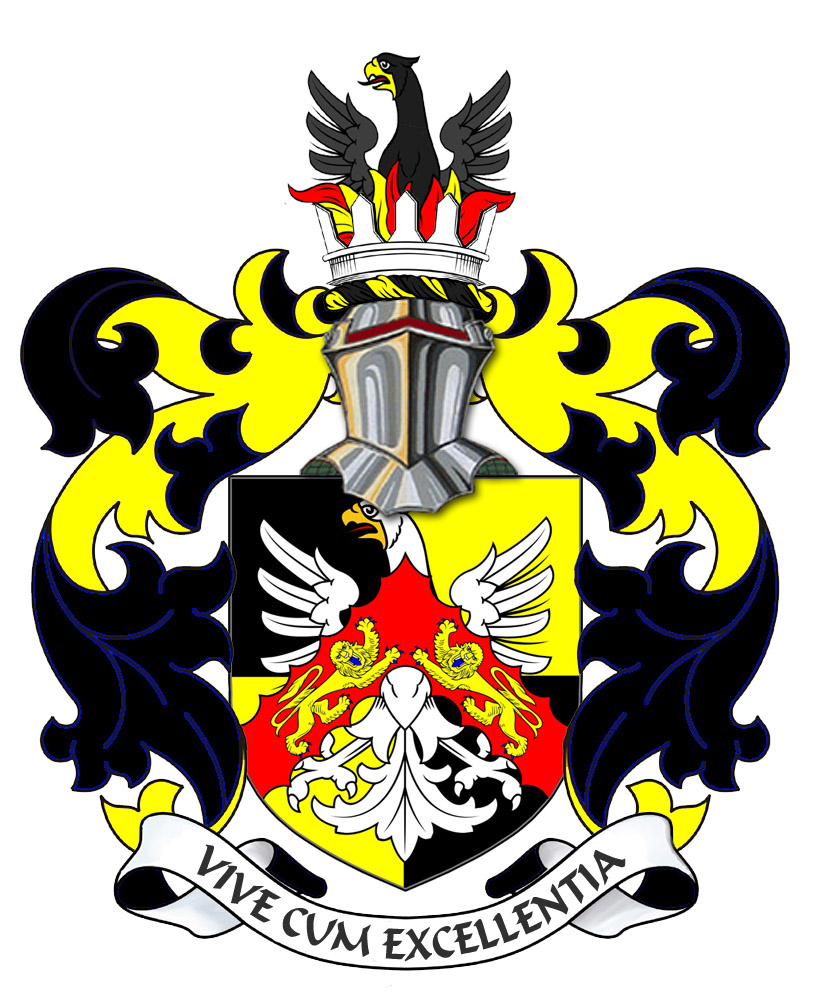
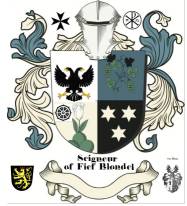
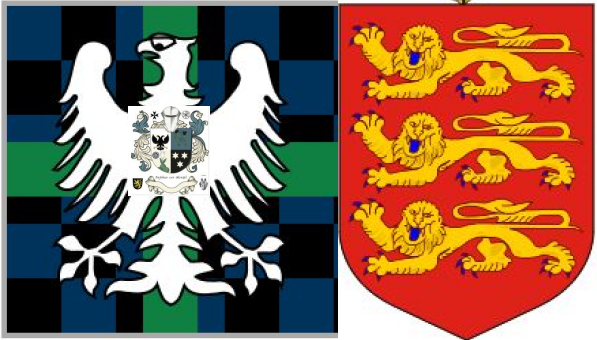

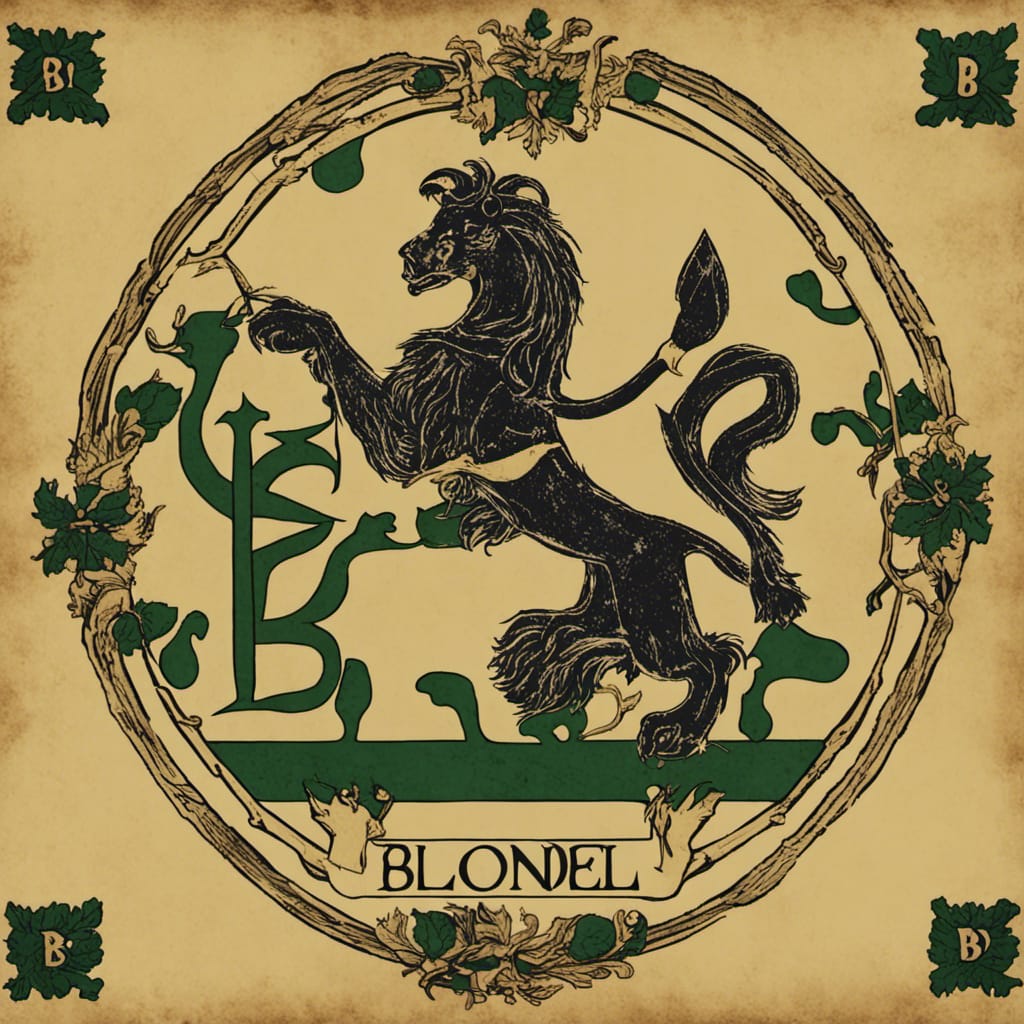
George Mentz Education -
Commissioner George Mentz
-
https://finance.yahoo.com/news/commissioner-george-mentz-clinches-influencer-180000705.html
-
George Mentz News -
George Mentz Net Worth - George Mentz Noble Tilte -
George Mentz -
George Mentz Trump Commissioner -
George Mentz Freiherren Count Baron -
George Mentz Global Economic Forum -
George Mentz Donates Millions
